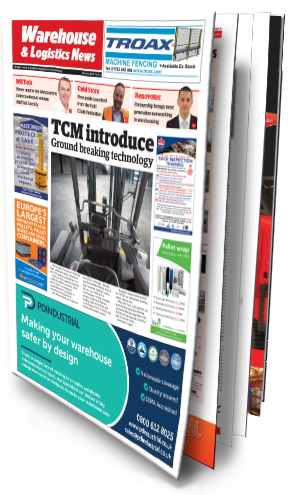 Welcome to this issue where you will find much to help guide you through the challenging vicissitudes ahead, be it post-Brexit planning or dealing with the consequences of changes forced by e-commerce. Now that the Government has confirmed plans for import controls at the UK’s borders after the one-year Brexit transition period ends on December 31st 2020, the United Kingdom Warehouse Association (UKWA) is calling on association members, non-members, 3PLs, retailers and real estate developers to join them to develop an imaginative, coherent response to the Government’s proposals.
Welcome to this issue where you will find much to help guide you through the challenging vicissitudes ahead, be it post-Brexit planning or dealing with the consequences of changes forced by e-commerce. Now that the Government has confirmed plans for import controls at the UK’s borders after the one-year Brexit transition period ends on December 31st 2020, the United Kingdom Warehouse Association (UKWA) is calling on association members, non-members, 3PLs, retailers and real estate developers to join them to develop an imaginative, coherent response to the Government’s proposals.
CLICK HERE TO LAUNCH THE DIGITAL EDITION OF WAREHOUSE & LOGISTICS NEWS MAGAZINE
Their concerns are substantial and justified. What, for example, will be the impact of dealing with over 200 million more customs declarations, by UKWA’s estimates? There will certainly be an interruption of trade flows, like bottlenecks at ports, warns UKWA, and to maintain equivalent lead times it is likely to mean mitigation by companies holding additional inventory and thus demanding additional warehousing space in an already tight warehouse market. Opportunities, perhaps, for temporary buildings suppliers? “We need to respond urgently to the spike in demand for warehousing services that inevitably lies ahead,” says UKWA’s CEO, Peter Ward.
Changes of another kind, this time deriving from e-commerce, can be seen by checking out our facilities management section where the problems of warehouse security demands a different approach. The internal pilferage rate is rising because of the big shift from full pallet load distribution to single item handling to meet online orders, while losses from external attack are falling. Should you outsource this function to experts or not? Should it be a board level responsibility rather than facilities managers? Find out more from this section.
Over in our cold store section we highlight the special concerns of the cold supply chain industry where more change is inevitable if the industry is to become more resilient and meet the challenges posed by climate change. The good news here is that new investment is growing strongly and that technology innovation is giving a much-needed hand to meet the Government’s environmental targets.
On technology, our front page story reveals TCM’s ground-breaking technology for its 48-volt electric counterbalance trucks. The company has been nominated in two categories at the FLTA Awards for Excellence in 2020. Their design criteria was to take their reach truck technology into their three and four-wheel electric counterbalance trucks to bring unrivalled comfort and efficiency, enabling a mix of warehouse and counterbalance trucks to work side by side with common controls. Good luck with that one, TCM.
Innovation is also shining through with the NexSys battery range which now covers all materials handling vehicles. Its TPPL technology from Enersys is now available in two forms. First is its NexSys Core battery, a high performance alternative to traditional lead-acid batteries. The second is the new NexSys pure battery which is powerful enough to offer a compelling alternative to Li-ion in many applications.
Finally, if you are having trouble with your pallet handling costs why not read what Diane Carroll, UK and Ireland commercial director at red pallet pooling specialist, LPR, has to say about pallet management’s hidden costs, the issues and solutions?
James Surridge
Publishing Editor




Comments are closed.